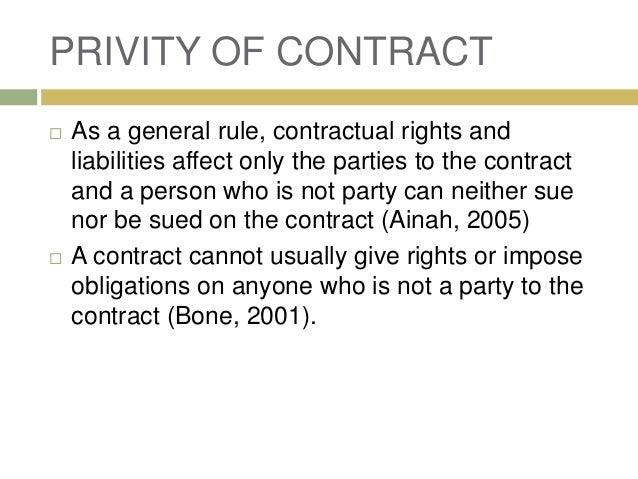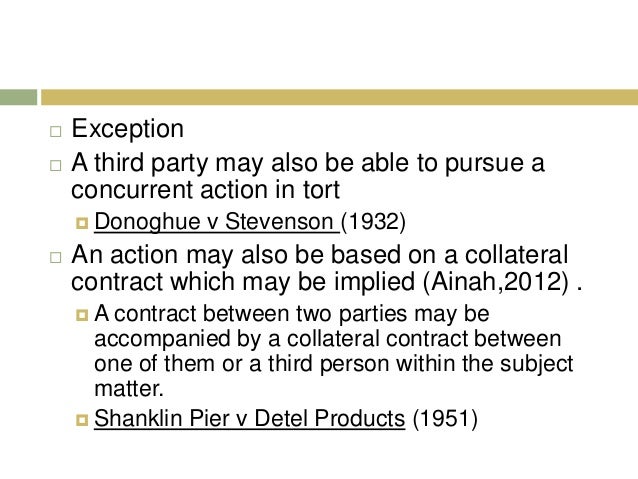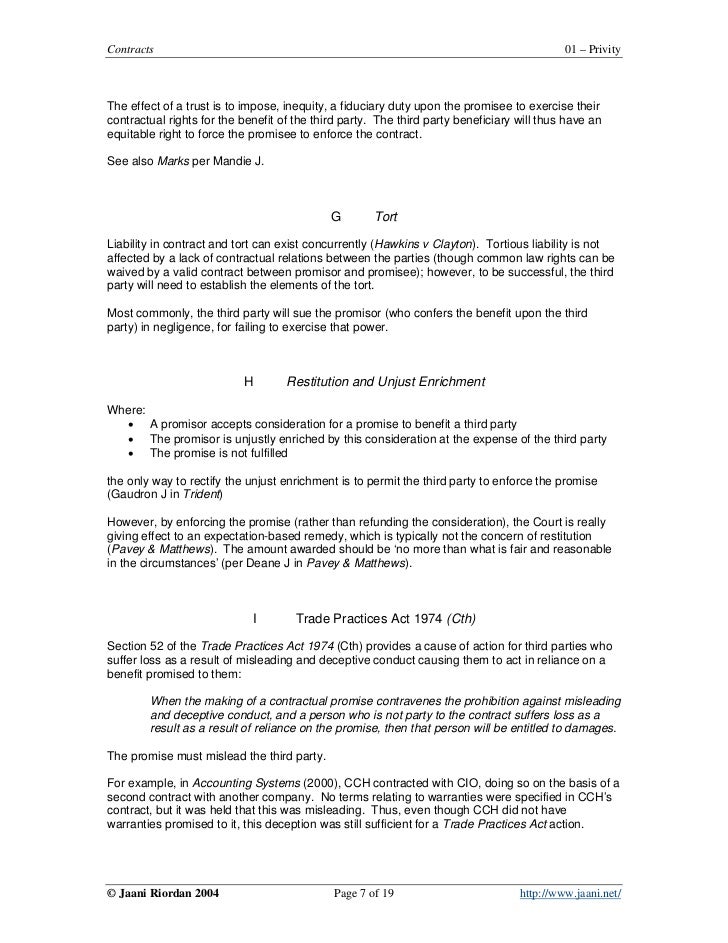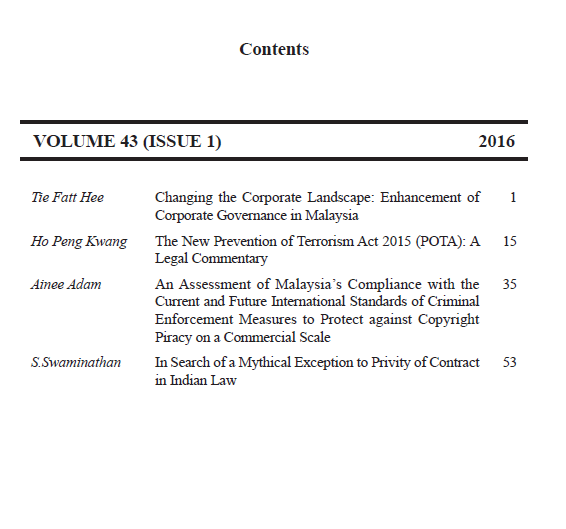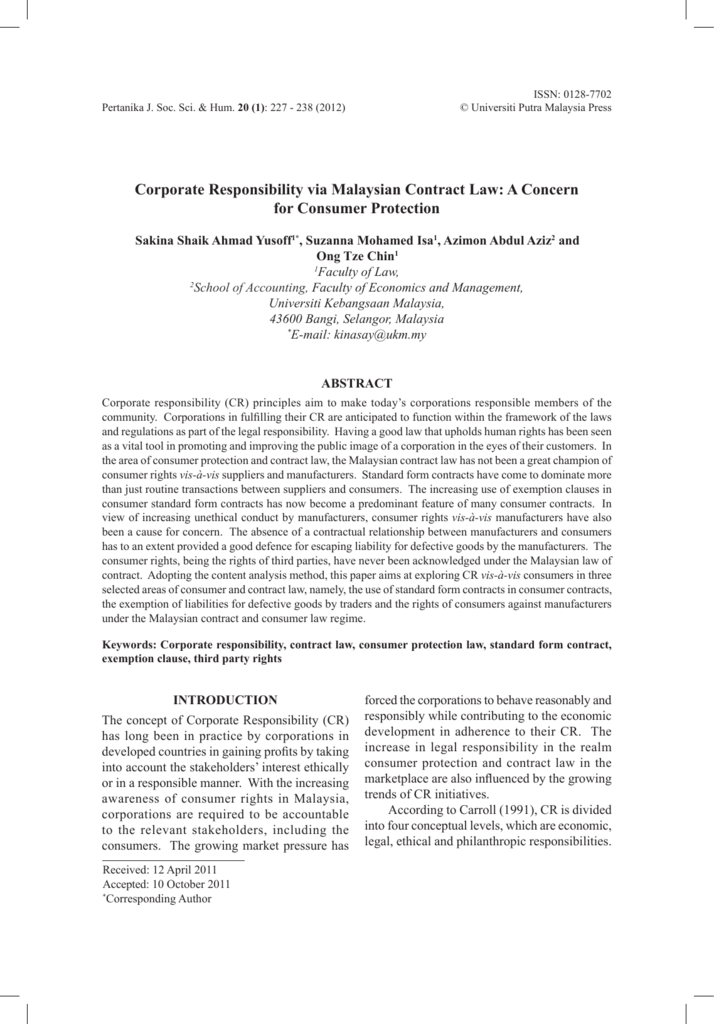Privity Of Contract Malaysia
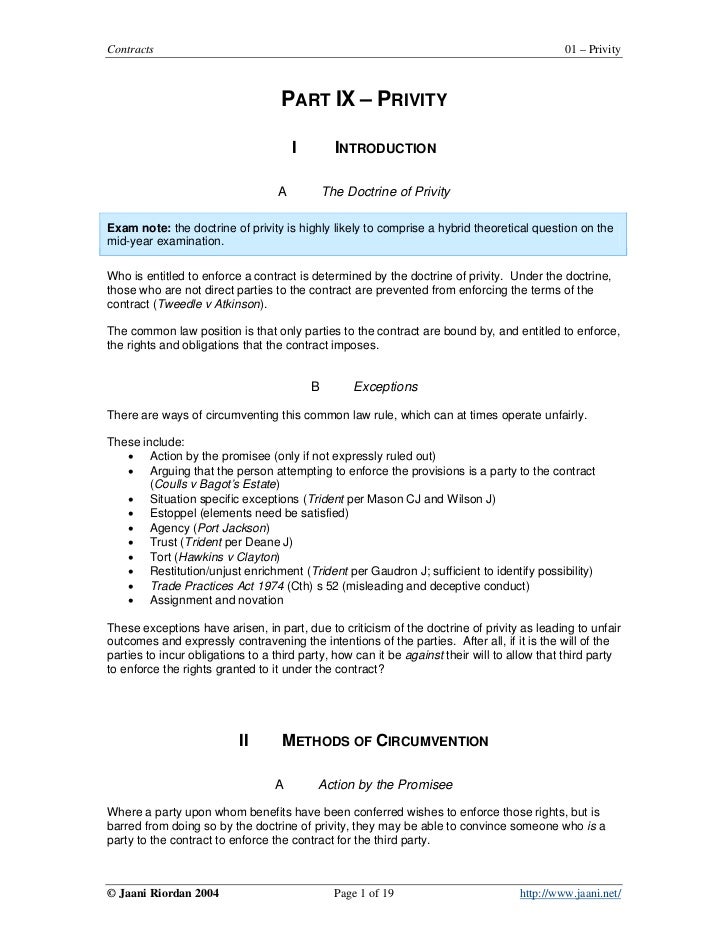
In this case it was the first case that determine whether the doctrine of privity in english contract law is applicable in malaysia under section 2 d of 1950 contract act.
Privity of contract malaysia. The doctrine of privity of contract is a common law principle which provides that a contract cannot confer rights or impose obligations upon any person who is not a party to the contract. Explain privity of contract in the context of sale of goods. However the doctrine has proven problematic because of its implications for contracts. The main obstacle of this doctrine is that it frustrates the contracting parties intention to benefit third.
The rule of privity of contract is the fundamental principle of common law. In malaysia the contracts act 1950 does not expressly provide for this principle but it is firmly acknowledge that the doctrine has been transplanted into our law in malaysia. Malaysia the doctrine of privity is confined to the rule that only a party to a contract may su e on it. This principle is known as privity of contract.
In malaysia the development of doctrine privity contract in malaysia begin with the first case in malaysia court which is kepong prospecting ltd v schmidt 8. 3 besides the high court in australia and the supreme court in canada had also created exceptions to the privity rule. T here appears to be no rule in malaysia that a person who is alien to the consideration. The reasoning behind this goes as follows if the promisor to the main contract promises the third party that he will perform his obligations under the main contract then a collateral contract exists.
The notable reform was that undertaken by the english parliament which resulted in the enactment of contracts rights of third parties act 1999. In the case of oriental bank bhd v uniphoenix corp bhd the courts stated that collateral contracts can be the exception to the privity rule. It is a fundamental rule of the common law that apart from special circumstances for example in cases of agency trust assignment or statutory exception a person who is not a party to a contract has no right to sue. As the general rule for any type of contact included sale of goods the terms of a contract are only binding on the parties to such contract or only the persons who are parties to the contract can acquire rights and incur liabilities under it.
